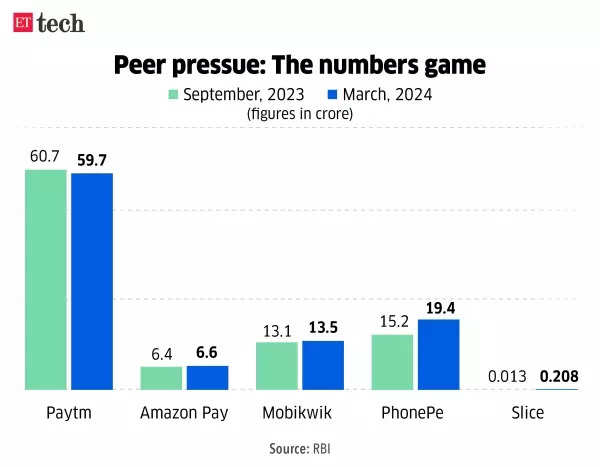The stock of the Noida-headquartered company was trading 4.99% lower at Rs 334.15 on the Bombay Stock Exchange at the market close. The share price of Paytm dropped by 5% on Monday as well, triggering the lower circuit.This was in response to the announcement of Bhavesh Gupta, the company’s chief operating officer and president, resigning from his position on Saturday.
Paytm was valued at nearly $20 billion during its initial public offering (IPO) in 2021, according to an ET report. Shortly after listing, the market capitalisation of Paytm dropped to $13 billion, which was below its last private market valuation of $16 billion.
Also Read | Have the @Paytm UPI handle? Here’s how you can activate a new UPI ID on the Paytm app
The company’s shares have been falling mostly since the end of January due to the Reserve Bank of India’s actions against Paytm Payments Bank.
The Reserve Bank of India, in a communication dated January 31, requested Paytm Payments Bank to stop its primary banking services. Subsequently, the Managing Director and CEO Surinder Chawla of the payments bank resigned.
Paytm Playbook
Recently Paytm has announced changes in its leadership structure. Paytm stated that Varun Sridhar, the CEO of its wealth management platform Paytm Money, would be replaced by Rakesh Singh, who previously led broking services at PayU-backed Fisdom. ET was the first to report the departure of Sridhar on May 2.
“Our focus on payments and lending is stronger than ever, and I will work with the seasoned leaders that we have in each of our businesses to execute our plans,” said Paytm founder and CEO Vijay Shekhar Sharma, commenting on Gupta’s resignation.
He mentioned that Sridhar will guide Paytm in expanding its reach in mutual fund and wealth management products, while Singh, the new CEO of Paytm Money, will concentrate on developing technology-driven wealth options for young Indians.

Paytm Peer Pressure
The National Payments Corporation of India (NPCI) in March permitted One 97 Communications to operate as a third-party application provider on the Unified Payments Interface infrastructure, putting it in competition with the likes of Google Pay and PhonePe.
The changes on the top deck are happening amidst a significant impact on the fintech company’s business. ET reported on April 30 that the regulatory action taken against Paytm Payments Bank has completely stopped the mobile wallet business of the company, which is one of its most popular services. Due to the Reserve Bank of India directive, the company is unable to acquire new customers, leading to a significant decline in transactions on the platform over the past three months as customers gradually transition away from Paytm Payments Bank’s wallet system.
